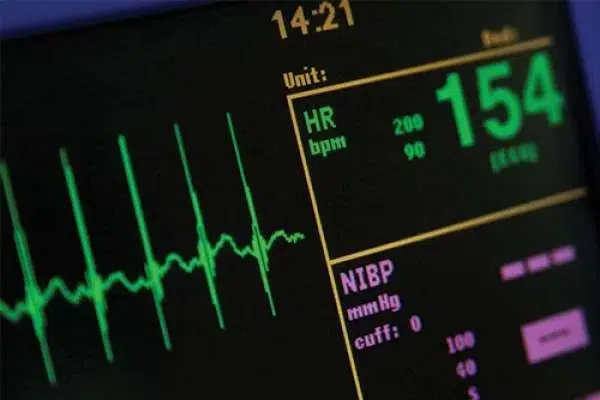With the prevalence of stress in most people’s lives, anxiety incidence and management becomes an important factor for healthcare professionals to assess when evaluating well-being. However, these assessments can be complicated by the fact that stress and anxiety affect everyone differently—for some, chronic stress may have a more serious health impact than for others. A study recently released by Concordia has made important steps towards understanding how anxiety affects different people, and identifies a way to determine who will be the most affected by stress.
The study suggests that it’s possible to determine who will suffer the most from stress by monitoring heart rate variability, a finding which may be of huge value to healthcare professionals seeking to prevent, control, or eliminate anxiety in their patients.
Monitoring Shared Stress in University Students
In order to study the effects of similar stresses on different people, Concordia professor Jean-Philippe Gouin monitored the moods and heart rates of 76 university students throughout the school year. Heart rates during relaxation periods were compared to their heart rates while thinking of scenarios that made them anxious or worried.
These statistics were recorded from the beginning of the school year, at times of lower stress, all the way through to the high-stress periods prior to and during exams. Gouin found that though all of the students experienced similar stressors and challenges during exams, only some of these students displayed signs of significant anxiety and distress.
Examining Heart Rate Variability in Students
When heart rate variability was compared to the anxiety experienced by students during finals, Gouin found that those with higher variability were less likely to be stressed or anxious. Surprisingly enough, those whose heart rates fluctuated more intensely were actually more resistant to high stress and anxiety.
Gouin explains this by stating that “At rest, a more variable heartbeat is a good thing. It shows that your parasympathetic nervous system is hard at work. That’s the system that’s responsible for the ‘rest-and-digest’ state of being—the opposite of ‘fight-or-flight.’ The rest-and-digest phase puts you in a calm state that allows you to conserve and replenish your energy.”
Heart Rate Variability as a Diagnostic Tool
Gouin commented on the importance of these findings, emphasizing that identifying patients vulnerable to anxiety is integral to preventing the negative health effects of chronic stress. He stated that “by pinpointing those in the general population who are most vulnerable… we can intervene before they hit the breaking point. That’s why it’s important to have an objective diagnostic tool like this one.”
Serious symptoms of irregular heart rhythm
If you notice any of the following signs related to your heartbeat it’s essential to reach out to your doctor or call 911 for immediate medical attention;
- If the irregular heartbeat occurs frequently. Without a clear cause.
- If you experience a fast heart rate when at rest (more than 100 beats per minute).
- If your pulse is slow with than 60 beats per minute.
- If you feel fluttering in your chest such as when your heart skips a beat or beats excessively.
- If you have any discomfort, in your chest.
- If you are having difficulty breathing.
- If you feel tiredness, lightheadedness or dizziness.
- If there are episodes of unconsciousness, blackouts or collapsing.
Remember to seek attention promptly if these symptoms occur to ensure proper evaluation and care for your abnormal heart rhythm.
FAQ about an irregular heartbeat (arrhythmia)
Understanding Arrhythmia:
Arrhythmias come in forms classified according to their rate or regularity. This implies that the heart rhythm can either skip a beat or add an one leading to fluctuations between excessively fast and excessively slow heart rhythms. It can also manifest as a heart rate that’s higher or lower, than the usual.
Your doctor might identify an arrhythmia during an examination of your heartbeat. Alternatively you may notice these changes by yourself.
Can a Heartbeat Regulate Itself Again?
Sometimes arrhythmias can resolve on their own. However if you notice any symptoms related to your arrhythmia it’s crucial to seek medical help.
Is there a cure for an irregular heartbeat?
When it comes to treating a heartbeat also known as arrhythmia it’s crucial to understand the underlying cause. These abnormalities can stem from heart conditions like atrial fibrillation (AFib) cardiomyopathy heart failure or coronary artery disease. Each condition requires an approach that takes into account the overall health of the patient.
In some cases medication may be recommended as the course of action. Other conditions might call for interventions or less invasive techniques to improve blood flow. Depending on your situation your doctor may suggest using devices like cardioverter defibrillators (ICDs) or pacemakers. It’s essential to have a conversation with your doctor about the suitable treatment, for your specific heart rhythm situation.
Do stress and anxiety affect heart rhythm?
Sometimes stress or strong emotions can actually contribute to causing a heartbeat. Additionally there are other factors that can impact your heart rhythm, including things like consuming caffeine engaging in physical activity consuming alcohol being exposed to air pollution using tobacco products or even taking recreational drugs. If you have any concerns that any of these factors may be affecting your heartbeat it’s crucial to have a conversation about them, with your doctor.
Mark Willson, holding a Ph.D., functions as a psychotherapist in Washington, D.C. His specialized fields encompass addiction, anxiety, depression, as well as sexuality and interpersonal connections. Dr. Willson holds the distinction of being a diplomat for the American Board of Addiction and Anxiety, further serving as a certified counselor and addiction specialist.
Aside from his personal professional endeavors, Dr. Wilson has engaged in roles as an author, journalist, and creator within substantial medical documentary projects.




